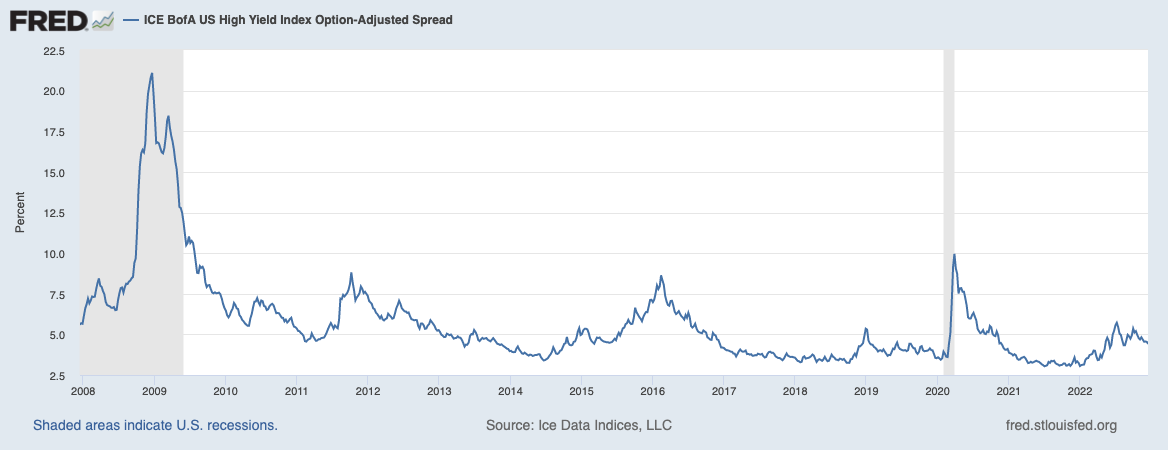Franklin Templeton's three biggest opportunities for 2023
The consensus refrain from professional money managers has started to become clear - bonds and stocks are in for a better year in 2023 simply because 2022 was such a challenging year for returns. Some asset managers have added the continuing attractiveness of alternative investments given how that asset class outperformed this year.
In other words - stay invested.
The team at Franklin Templeton Institute don't disagree, as chief market strategist Stephen Dover writes in the team's 2023 investment outlook whitepaper.
"We believe it will be as important as ever to be diversified and actively select investments, particularly when tilting toward risk assets."
What is different about this whitepaper is just how bearish the team is on risk assets in the first half of 2023. They argue that both styles of conventional investing (value and growth) will be hit hard by increased risk premia and reduced corporate profits. Put another way, earnings downgrades will likely be the story of early next year before any sort of recovery can be seen.
In this wire, I'll take you through the last in our 2023 outlook whitepaper series - and highlight the specific opportunities the Franklin Templeton team are watching out for next year.
Key asset allocation calls in brief
- US bonds are back as a core building block for portfolios
- Investment grade credit also looks good, despite the risk of higher defaults
- Active investing is still required in equities
- Value bias and emerging markets to outperform... but not until the second half of 2023
- Commercial infrastructure is their top pick in the alternatives space
Bonds are back in the band
Bond investors have grappled with aggressive
central bank actions in light of rising inflation globally. And with all the world's major central banks tightening at different paces and being on different wavelengths, will bonds be able to recover from a savage 2022?
I'll let Ed Perks, Franklin Income Investors CIO answer that question.
"If equity prices remain expensive relative to the yield we can achieve in fixed income, then the shift into bonds will continue, albeit at a slower pace as we get closer to a 60/40 allocation tilt in favour of fixed income over equities."
Perks goes on to argue that the search for yield in markets ex-equities is finally over given spreads are widening and yields have been surging across government and corporate credit.
Investment grade credit is the team's preferred pick in the fixed-income space, with high-yield credit not far behind. The team argue fears over the resilience of high-yield bonds are overblown even if a recession comes to fruition in the US. They argue the income being seen in high yield, currently at the highest levels in many years, is a worthy entry point.
Bank of America US High Yield Index Option-Adjusted Spread
.png)
The team also has some history on their side in making this call.
"[US] High yield has never experienced consecutive years of negative returns, and impressive rebounds have usually followed large drawdowns."
Equities: The secret weapon
Franklin Templeton's lauding of the bond market as an investment opportunity next year does mean the money has to come from somewhere. In this case, it's equities. The team write that they have been taking profits from a range of COVID-winning sectors including pharmaceuticals and consumer staples. And while they're not keen on re-entering growth equities like some other investors are, they do highlight one growth-oriented sector as a top opportunity for next year.
Semiconductor companies attracted a lot of press earlier this year when US President Joe Biden signed the CHIPS Act into law. The sector has been a hot topic this year given the bubbling war for technology IP between the US and China. In October, the US banned exports to China of US-manufactured chips. The outcome of this cold conflict could have huge ramifications for everything from financial markets to military modernisation.
In the middle of this saga is Taiwan, where TSMC manufactures 90% of the world's semiconductors and handles the bulk of the key materials needed to manufacture chips. It also happens to be one of Franklin Templeton's top ideas, as Dina Ting explains.
"Investors have also been bargain hunting amid the general equity market downturn in 2022. TSMC in particular has come into focus recently since the United States placed new restrictions on sales of advanced semiconductors to China. The increasingly popular “China plus one” strategy could allow South Korea and Taiwan to pick up some business over the medium term."
It also helps that both economies have weak currencies, which is good news for their export markets like semiconductors.
You can get more analysis on this issue from Alison Savas at Antipodes who wrote this piece for the website in late October:
.png)
Another good year for alternatives?
2022 was a year of mixed performances for alternative investments. While the Morningstar Broad Hedge Fund Index is up nearly 19% this year, real estate valuations have been dealt a blow because rising interest rates put a dampener on valuations. But, as Franklin Templeton subsidiary Clarion Partners points out, that assumption generally applies to residential real estate. The outlook for commercial real estate is markedly different.
"There is a substantial amount of “dry powder” on the sidelines that seeks to be invested in commercial real estate. At the same time, most property owners are not overleveraged and are under little pressure to sell right away. For these reasons, we believe that it is likely that the transaction market will remain slow and repricing will not be as severe as during the Global Financial Crisis."
But as is with most things in life (and investing), there is a major caveat. Just because commercial real estate looks attractive as an asset class doesn't mean capital need to be deployed everywhere. The case in point here is the Eurozone where a recession is all but a guarantee for 2023.
In the wider infrastructure game, the team thinks that companies that benefit from a "CPI+" (inflation-indexed) revenue model will continue to do so next year.
"As real yields rise, utilities look poised to perform well, and we have currently tilted our infrastructure portfolios to reflect this."
And rising yields also mean listed infrastructure valuations will likely outperform listed counterparts as well. The one key caveat to this bull case is CAPEX. As infrastructure spending continues to catch up, the team note that higher interest costs are hitting the bottom line of some utilities firms.
2 topics
1 contributor mentioned

